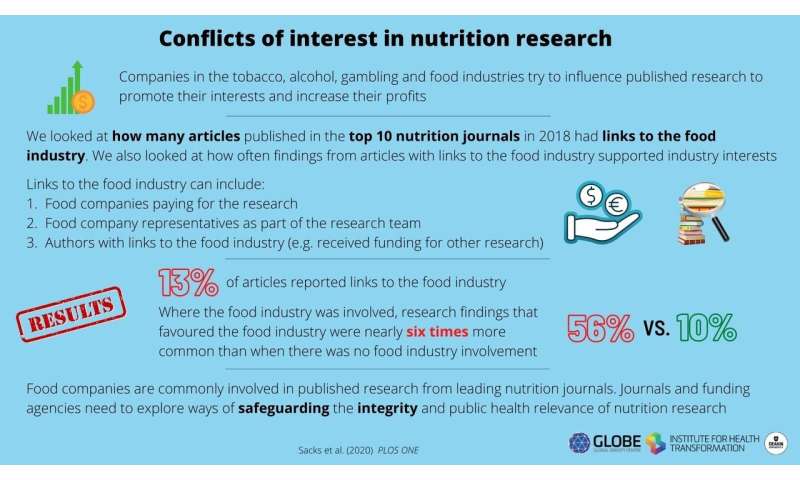
A new analysis of studies published by top nutrition journals in 2018 shows that 13.4 percent disclosed involvement from the food industry, and studies with industry involvement were more likely to report results favorable to industry interests. Gary Sacks of Deakin University in Melbourne, Australia, and colleagues present these findings in the open-access journal PLOS ONE on December 16.
Food companies might choose to become involved in nutrition research to help generate new knowledge. For instance, they might provide funding for academic research or assign employees to research teams. However, growing evidence suggests that food industry involvement could potentially bias nutrition research towards food industry interests, perhaps at the expense of public health.
To better understand the extent and potential impact of food industry involvement in research, Sacks and colleagues assessed all peer-reviewed papers published in 2018 in the top 10 most-cited academic journals related to nutrition and diet. They evaluated which papers had food industry ties, such as funding from food companies or authors affiliated with food companies, and noted whether results supported industry interests.
The analysis found that 13.4 percent of all analyzed articles reported involvement from the food industry (196/1,461), with some journals having a greater proportion of involvement than others. Compared to a random sample of studies without food industry involvement (n = 196), studies with industry involvement were over five times more likely to report results that favored food industry interests; 55.6 percent compared to 9.7 percent.
These findings add to mounting evidence that industry involvement could bias research agendas or findings towards industry interests, while potentially neglecting topics that are more important to public health. The authors of this study suggest several mechanisms that could be explored to prevent the food industry from compromising the integrity of nutrition research.
Source: Read Full Article
